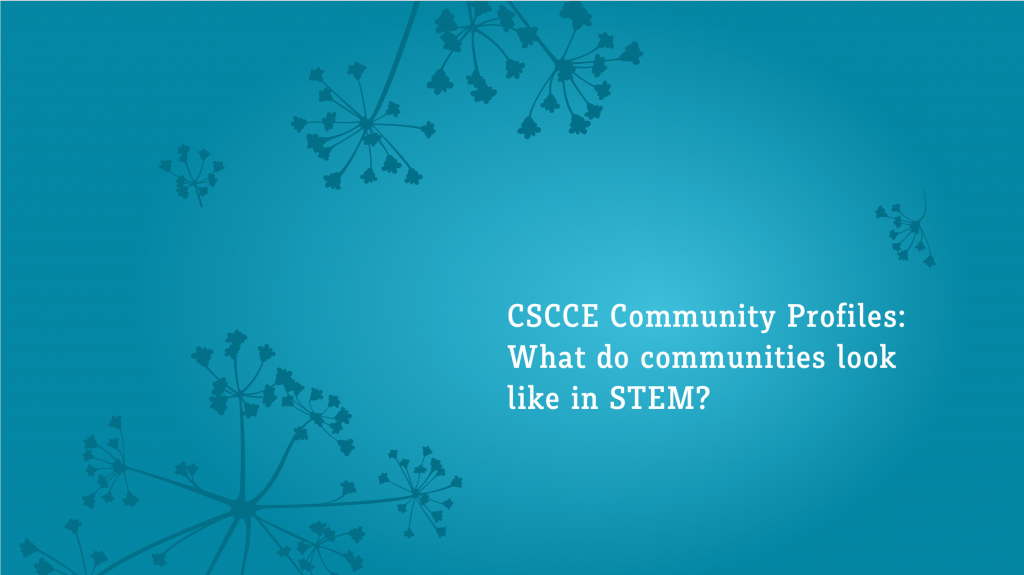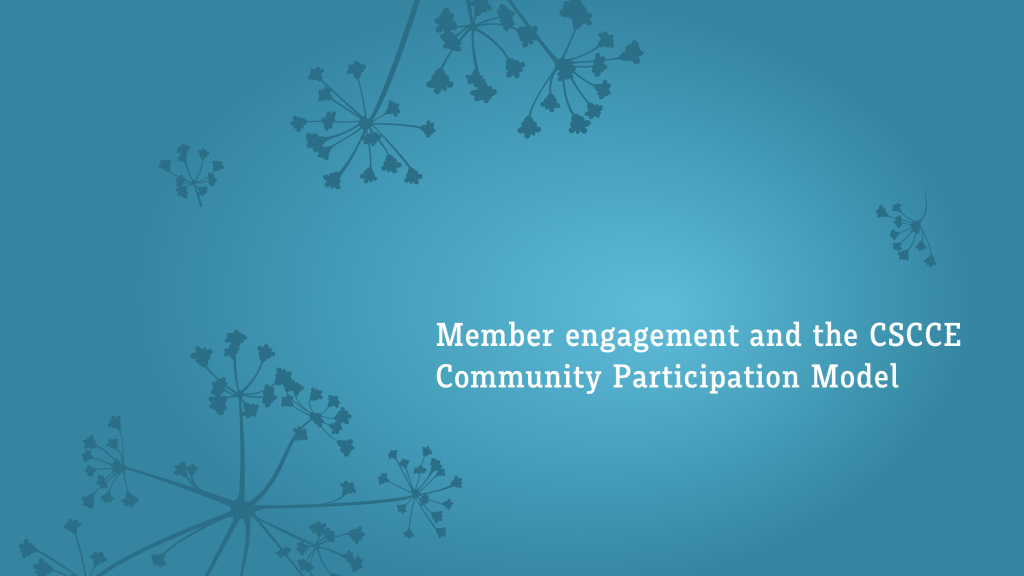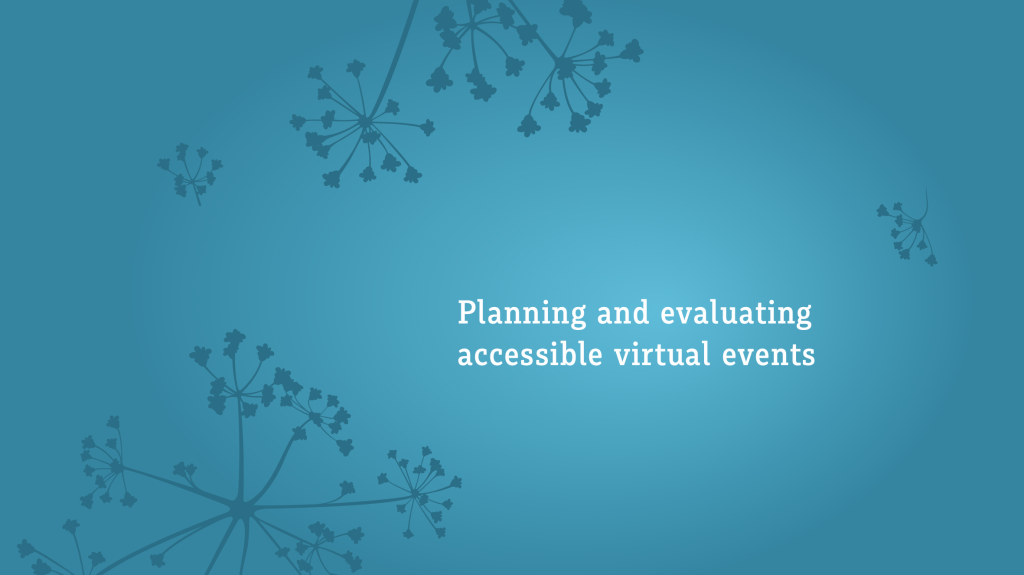In out last blog post, we announced the release of 13 new “Community Profiles,” created by CSCCE staff in collaboration with independent contractor, Sara Kobilka. In this post, which was co-authored with Sara, we delve a little deeper into our methodology.
Survey Design
As we began the survey design process we worked to balance multiple considerations. First, we wanted something as complete as possible. Lou created the first version of the survey with the goal of collecting information about communities that scientific community managers had previously expressed interest in learning about – such as funding models, staffing, and online collaboration tools. At the same time, we didn’t want to make the survey too onerous for community managers to complete.
Continue reading “CSCCE’s Community Profiles Project: How did we do it?”

